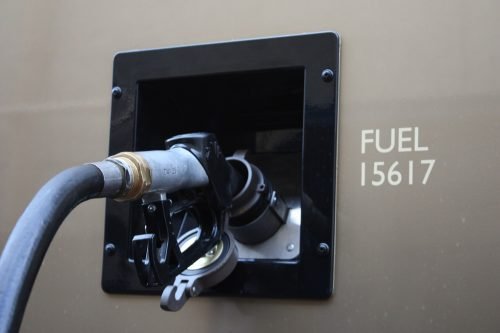
Fuel duty static for seventh consecutive year as almost £1.5bn of transport investment in existing roads and future technology is announced
Chancellor Philip Hammond has delivered the 2016 Autumn Statement, with details on tax changes and future government investment.
Some of the highlights for coach and bus industry included:
- A fuel duty freeze for 2017, the seventh successive year;
- £390m investment in future transport technology, including driverless cars, renewable fuels and energy efficient transport. This will include £150m to provide at least 550 new electric and hydrogen buses, reduce the emissions of 1,500 existing buses and support taxis to become zero emission. A further £80m will be used to install more charging points for ultra-low emission vehicles;
- A major new investment in transport infrastructure, as part of the National Productivity Investment Fund, which will cover £1.1bn to reduce congestion and upgrade local roads and public transport, £220m to tackle road safety and congestion on Highways England roads, and £27m to develop an expressway connecting Oxford and Cambridge;
- There will also be a two-year 100% first year allowance for companies who install electric charge-points. This allows companies to deduct the cost of the charge-point from their pre-tax profits in that year;
- A National Living Wage increase for those aged 25 and over, from £7.20 per hour to £7.50 per hour. This should represent an extra £1,400 a year more for a full-time worker previously on the National Minimum Wage;
- The National Minimum Wage will also increase: for 21 to 24 year olds – from £6.95 per hour to £7.05; for 18 to 20 year olds – from £5.55 per hour to £5.60; for 16 to 17 year olds – from £4.00 per hour to £4.05; and for apprentices – from £3.40 per hour to £3.50; and
Insurance Premium Tax (IPT) will increase from 10% to 12%. IPT is a tax on insurers and they can choose whether and how to pass on costs to customers.
The Freight Transport Association (FTA) said the Chancellor had recognised the impact of the fuel duty tax on businesses and families, but a cut would have boosted Britain’s economy by reducing the tax.
FTA has consistently called for a 3p per litre cut in fuel duty, which it said would deliver around £1,500 annual saving on the running cost of a 44 tonne truck.
FTA Deputy CEO, James Hookham, said: “Naturally we are pleased with the Chancellor’s decision not to increase fuel duty in line with inflation as previously planned. The freeze will save truck operators – the majority of which are small and medium businesses – about £9,000 a year for a typical 10-vehicle fleet.
“The Chancellor has understood the arguments made by the FairFuelUK campaign and fuel duty has moved from being a ‘sin tax’ like alcohol and tobacco duty to being recognised as a core burden on families and businesses who can be helped by freezing it.
“The Chancellor needs to continue that logic and recognise that reducing tax duty in future will bring even greater benefit to the economy.”
On infrastructure investment, James added: “The increased spending on infrastructure is great news and we await the details of which specific road and rail schemes will go ahead in the next few days, but we are pleased that the East-West corridor investment between Oxford and Cambridge is going ahead.
“More money for local infrastructure is welcome and we will be presenting our list of preferred schemes to local highway authorities and the devolved governments to prioritise those that most benefit freight movements.”
Claire Haigh, Chief Executive of Greener Journeys, said: “We welcome the Government’s plans to spend £1.1bn on upgrading local roads, but are disappointed that the Chancellor has once again chosen to freeze fuel duty rather than acting to reduce car use.
“Britain is suffering from a congestion crisis which is costing the UK more than £13bn a year. If the Government is serious about tackling congestion, it must introduce measures to make it less convenient and more expensive for people to drive.
“At the same time, it must make buses and other forms of public transport a more attractive option. We therefore call on the Government to invest in bus priority measures and effective bus infrastructure – such investment can generate up to £7 of economic benefit from every £1 invested.
“Crucially, we urge the Government to reverse the decision to freeze fuel duty – the cheap cost of motoring is keeping people in their cars and drawing them away from public transport.
“If we are to tackle the congestion crisis then the Government must encourage people to leave the car at home.”

